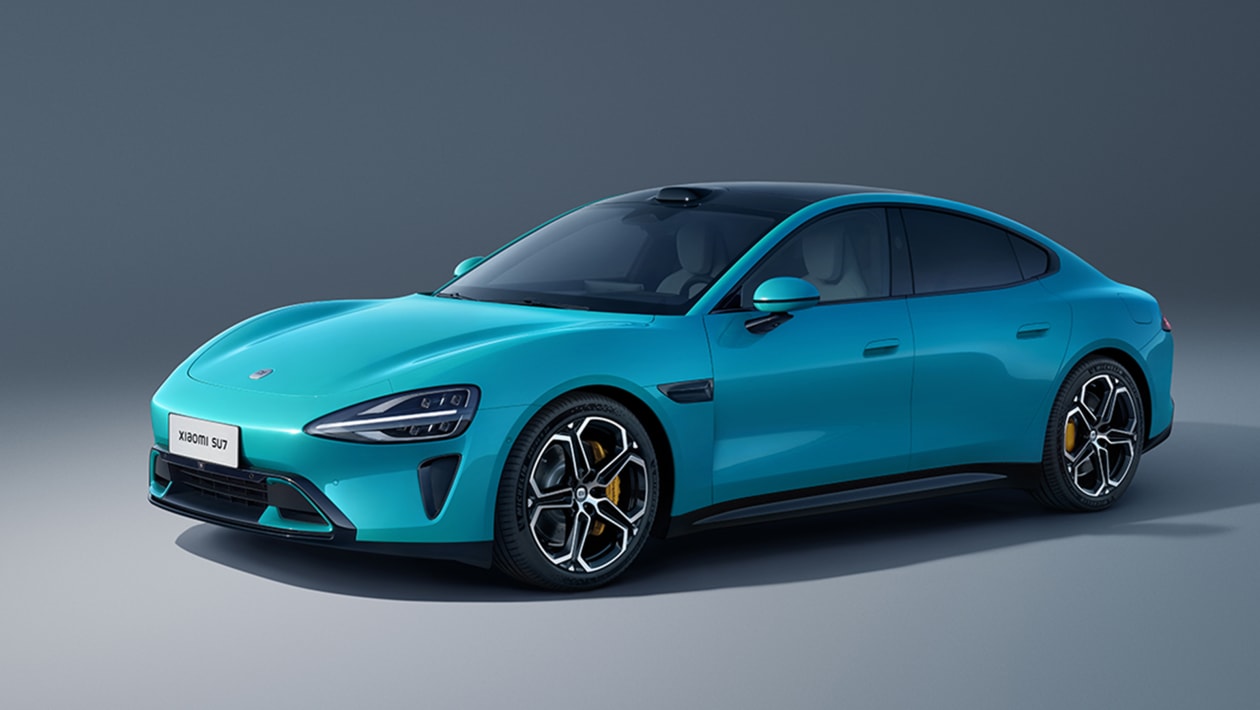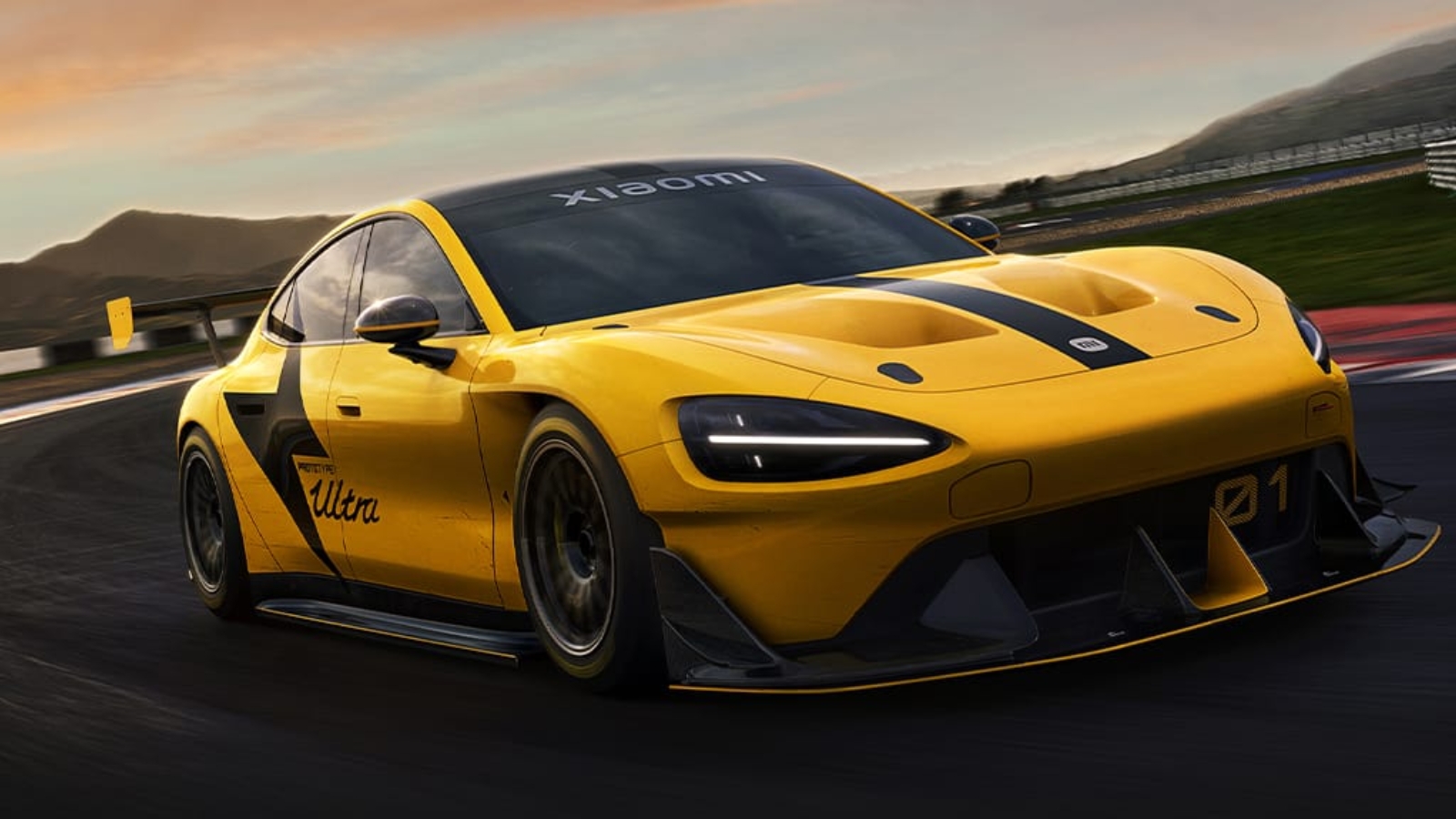The automotive world just witnessed something extraordinary. A smartphone company that started making cars only four years ago has just humbled some of the most prestigious names in performance driving. The Xiaomi SU7 Ultra has claimed the Nürburgring production EV lap record with a blistering time of 7:04.957, leaving both Rimac and Porsche in its wake.
The Record That Changed Everything
The SU7 Ultra didn’t just break records—it demolished them. This achievement represents more than just numbers on a stopwatch; it signals a seismic shift in the global automotive landscape.
When the dust settled at Germany’s legendary “Green Hell,” the results were stunning. The SU7 Ultra was nearly three seconds quicker than the Porsche Taycan Turbo GT with Weissach Package and beat the Rimac Nevera by more than three-tenths of a second. What makes this even more remarkable? The car costs around $73,724—a fraction of its competitors’ prices.

Power Meets Precision
The engineering behind this achievement is genuinely impressive. The SU7 Ultra generates 1,527 combined horsepower from three electric motors, with each rear motor producing 570 horsepower and spinning to 27,200 RPM. That front motor adds another 387 horsepower to the mix.
The 93.7 kWh battery pack features a 16C discharge rate, allowing it to dump 1330 kW when needed. Even more impressive, it maintains 800 kW output even at 20 percent charge—crucial for maintaining performance throughout an entire Nürburgring lap.
More Than Just Raw Speed
During its record run, the SU7 Ultra hit a top speed of 214.994 mph on the Döttinger Höhe straight. But speed alone doesn’t win at the Nürburgring—you need sophisticated engineering.
The car features an active rear diffuser, oversized front splitter with air curtains, and a fixed rear wing that generates 628 pounds of downforce at top speed. This aerodynamic package keeps the car planted through the track’s notorious corners and elevation changes.
Record Comparison Table
| Vehicle | Lap Time | Power | Price (USD) |
|---|---|---|---|
| Xiaomi SU7 Ultra | 7:04.957 | 1,527 hp | $73,724 |
| Rimac Nevera | 7:05.298 | 1,888 hp | $2,200,000 |
| Porsche Taycan Turbo GT | 7:07.55 | 1,020 hp | $230,000+ |
| Tesla Model S Plaid | 7:25.2 | 1,020 hp | $90,000+ |
The Journey to Success
This wasn’t Xiaomi’s first rodeo at the Nürburgring. In October 2024, a stripped-down prototype version posted an even more incredible time of 6:46.874. However, that wasn’t a production car—it was essentially a race car with license plates.
The production version that set the new record in April 2025 proved that real-world SU7 Ultra buyers get genuine track-bred performance. This production car maintained rear seats, a usable trunk, and all the creature comforts you’d expect from a luxury sedan.
What This Means for the Industry
This achievement marks a significant shift in the balance of power in the automotive industry, with China now rivaling the West in performance cars. Xiaomi’s success story is particularly remarkable considering the company’s brief automotive history.
The fact that a smartphone manufacturer that just started making cars was able to beat Porsche on home turf shows just how much things have already changed. Traditional automakers are taking notice, and consumers are benefiting from the increased competition.
Value Proposition Revolution
Perhaps most shocking is the value equation. The SU7 Ultra costs less than many well-equipped pickup trucks but delivers hypercar-level performance. It can recharge from 10-80% in just 11 minutes with its 490-kW fast-charging capability.
Xiaomi’s founder Lei Jun believes this record will be broken again in the near future. Whether by Xiaomi themselves or other manufacturers, the rapid pace of EV development suggests we’re entering an era of unprecedented performance accessibility.
We’re witnessing electric cars that can go toe-to-toe with some of the past five years’ heavy-hitters from traditional performance brands. The SU7 Ultra’s achievement proves that the future of high-performance driving isn’t just electric—it’s accessible.
Xiaomi has fundamentally changed what we thought possible from a production electric sedan, proving that innovation and performance don’t require century-old automotive pedigree or seven-figure price tags.
Frequently Asked Questions
Q: How does the SU7 Ultra compare to other electric supercars?
A: It beat the $2.2 million Rimac Nevera by 0.341 seconds and costs just $73,724, making it the fastest and most affordable option.
Q: Can you actually buy this car?
A: Yes, but good luck finding one outside of China where it’s currently sold as a production vehicle.
Q: What made this record attempt different from the prototype run?
A: The production car was 1,070 pounds heavier and retained all comfort features, unlike the stripped prototype version.
